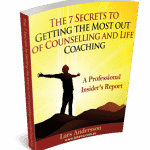Single or Married; which is better?
 Single or Married; which is better? Good question perhaps, but does it have an answer? Research comparing the physical and mental health of people who are married with those who are not appears to indicate that there is an answer to this question. But please notice that I use the word appears in that sentence, as there seems to me that there is a lack of understanding of how to interpret the research data. More about that further down. But first, let’s have a look at what research studies have found.
Single or Married; which is better? Good question perhaps, but does it have an answer? Research comparing the physical and mental health of people who are married with those who are not appears to indicate that there is an answer to this question. But please notice that I use the word appears in that sentence, as there seems to me that there is a lack of understanding of how to interpret the research data. More about that further down. But first, let’s have a look at what research studies have found.
Single or Married; mental health
Paul Amato, at the Australian Institute for Family Studies, published the findings from a large research project in 2015, which was trying to bring some light into whether being single or married has implications for your mental health. (You can read the full article here: Amato, P. R. (2015). Marriage, cohabitation and mental health. Family Matters, 96, 5-13).
In his article, Amato refers to several studies that have consistently shown that married people, on average, have better mental health than single people. This applies to depression, happiness, life satisfaction, psychological wellbeing, and suicide rates.
One of the difficulties with interpreting the research data, however, is that most studies simply compare ratings from the two categories of people (married vs. single) without having any way of knowing whether getting married actually causes the better mental health, or if having better mental health causes people to get married.
There are a few (4 according to Amato) studies that have used so called “fixed effect model” research, to look at people’s mental health before and after getting married. Three of those studies found that people’s life satisfaction had increased after getting married, while one found no difference.
An interesting finding from Amato’s research analysis too, was that the benefits of living together in an intimate relationship (married or not) continue indefinitely for men, whereas those benefits decline after the first year for women! A plausible explanation for this difference may be that women are more attuned than men are to the quality of their relationship, and that they therefore become aware of relationship problems sooner. And research actually shows, consistently, that women are less satisfied than men with their romantic relationships.
Single or Married; physical health
Leah Bushak published an article in April 2015 in Medical Daily, looking into research on how being single or married relates to some aspects of physical health. (You can read the full article here: Married Vs Single: What Science Says Is Better For Your Health)
According to her investigations, research shows that being married is good for your heart. E.g. a study at New York University’s Lagone Medical Center found that married people have a 5% lower risk than singles to get cardiovascular disease.
On the other hand, married people are far more likely to gain weight than singles. E.g. one study found that married men are 25% more likely to be overweight or obese than single men!
Interpreting research data
Now, let’s have a look at what this research tells us, and more importantly what it does not tell us. If you have never been involved in research, or in analysing and drawing conclusions from research, this may be an eye opener that can help your critical analysis of everything you read, hear on the radio, or see on TV from here on.
The fundamental problem we are facing, and the fundamental trap that we tend to fall into, is to believe that just because two phenomena occur together, one has caused the other. Amato’s article for example poses the question, “does getting married make you mentally healthy, or does being mentally healthy make you get married?” So, at least he recognises that it is difficult to know which one of these alternatives is the correct one.
But he overlooks the possibility – and this is so, so common when people read research data – that neither factor has caused the other! Sometimes there is a third factor that is the cause for both. In this case, however, I would suggest a different view; that people who have found themselves a partner that they are really suited for are likely to feel better, and have more life satisfaction, than people who have not found themselves such a partner. And, as is still customary, when people find the right partner, they get married to them.
So, it is not the act of getting married that improves your mental health. Nor is it being a mentally healthy person that makes you get married. It is having a good relationship that has positive effects on your health. In other words, it’s not a question of being married or not being married. It is a question of finding the right person and having a good relationship!
A study at Michigan State University, which Lecia Bushak also mentions in her article, supports this view. This study found that, while married people overall have better cardiovascular health than singles, people in a bad marriage were more likely than people in good marriages to get cardiovascular disease.
A funny example of someone who fell right into the trap of misunderstanding what can be gleaned from research data was reported in the UK’s The Telegraph on 21 April 2010. Earlier that month, the Taiwanese health minister, Yaung Chih-liang, suggested that single people should start having families as soon as possible to safeguard their emotional wellbeing. As if getting married – to just about anyone who walks down your street – would have that effect! Fortunately, he soon backed down on this idea and apologised for his suggestion, after he was taken to task by a high-powered, unmarried, legislator!
Single or Married; what’s the conclusion?
The way that I see it, apart from what I have mentioned above, there is one more factor to always take into account when looking at research data. The statistical analysis is done on a big group of people, and actually does not tell us anything much about what is true for any one individual – whether they were even in the research group or not. There are people who are single and are perfectly healthy, both mentally and physically. And there are people who are single and unhealthy, mentally and/or physically. Equally, of course, there are married people who are perfectly healthy, both mentally and physically. And there are married people who are not.
If you are already in a committed relationship:
The Relationship Satisfaction Assessment can be a useful tool for identifying where the weaknesses and strengths are in your relationship, so that you can improve the factors that are not working so well for you. And if you realise that you need help with sorting out some of what is not working all that well, contact me today for a chat, to find out how I can help.
If you are yearning for being in a committed relationship:
If you have been in a committed relationship before, and it didn’t work out, you may want to use the Relationship Satisfaction Assessment to figure out where things went wrong and what you will want to pay more attention to from start the next time around.
If you have never got as far as being in a committed relationship, then the Relationship Satisfaction Assessment may bring some clarity into why your previous attempts have not worked out. Even if you have never attempted having a committed relationship before, this tool can be quite useful, because it highlights the factors that you will want to get right when you are ready to commit.
Consider the wisdom in this quote though; “If you are single, focus on being a better you instead of looking for someone better than your ex. A better you will attract a better next.” You may want to check out the Life Satisfaction Assessment tool for ideas of what you need to focus on for your own growth and development. And if you want support in getting there, contact me for a chat about how I can be of help.
To be notified when similar articles to this one are published, subscribe to Authentic Living! – the newsletter for Integrating Awareness.

